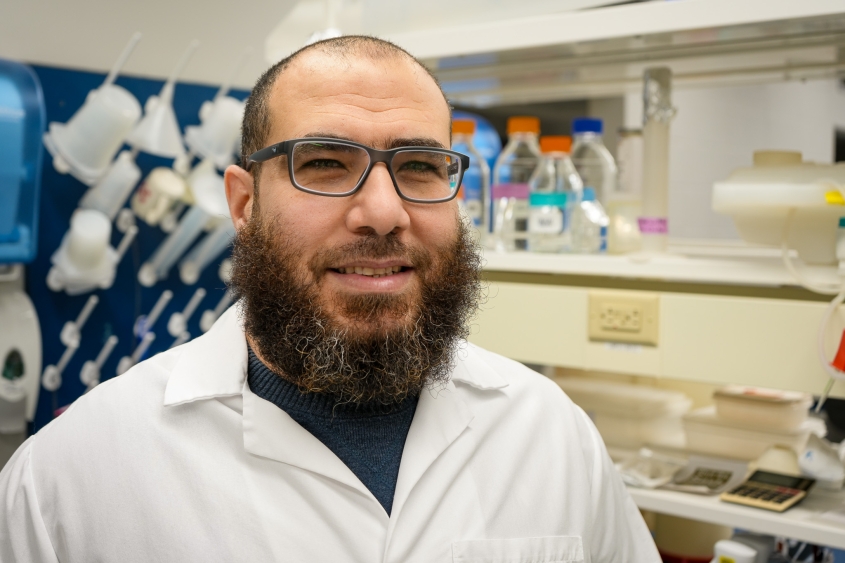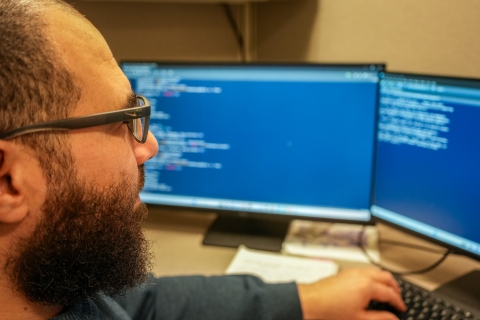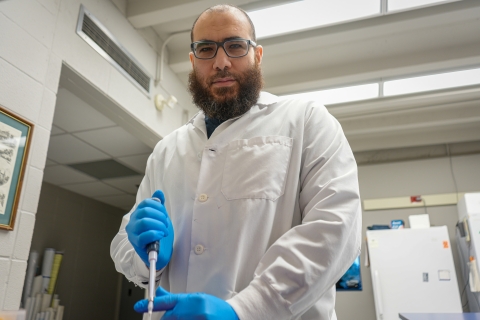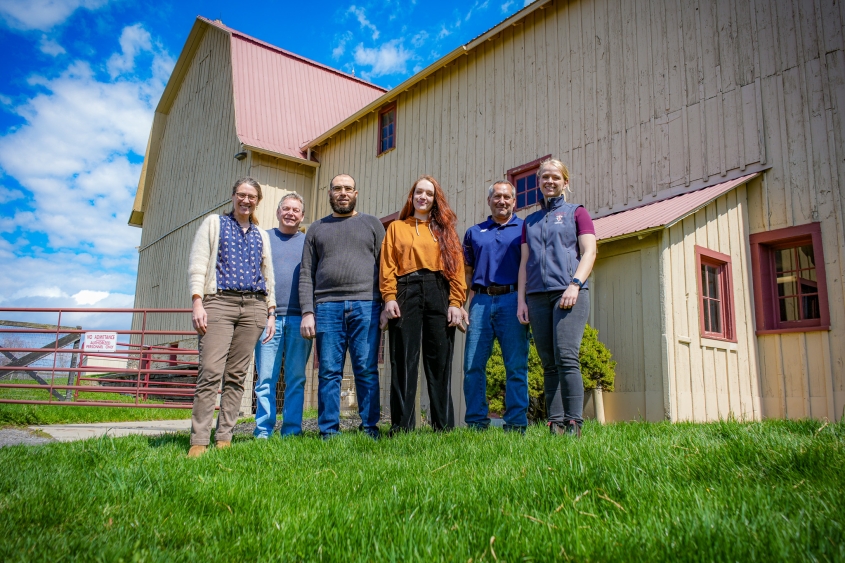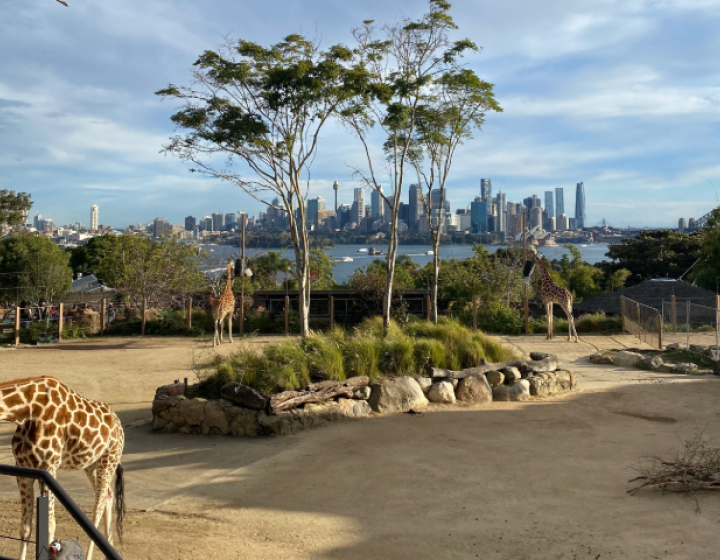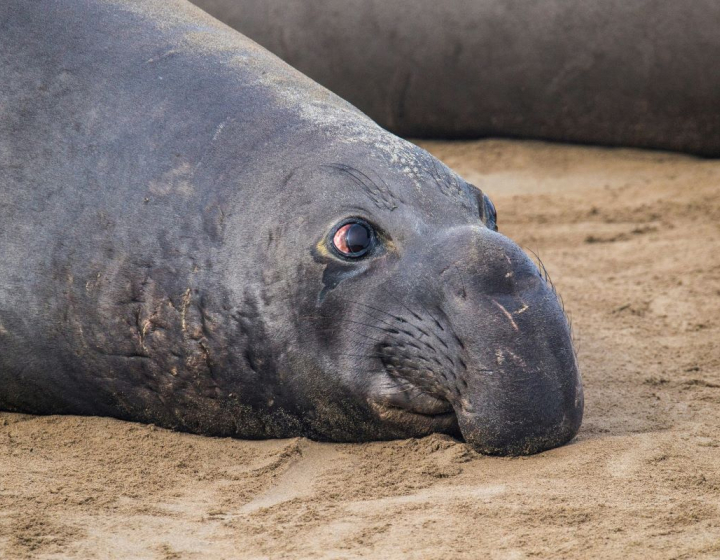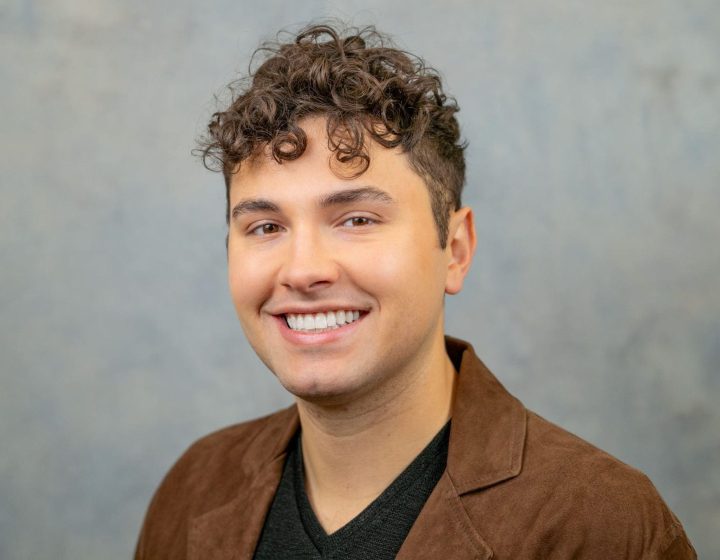Dr. Shebl Salem named recipient of Center of Vertebrates Genomics Scholars Award
The Cornell University Center for Vertebrate Genomics (CVG) recently announced the recipients of its 2024-2025 Genomics Scholars Awards. Dr. Shebl Salem, a postdoctoral associate in the de Mestre Lab at the Baker Institute for Animal Health, was one of 11 honorees that included four postdocs and seven graduate students. The diverse group represented five different colleges, and nine different departments spread across the university. The CVG, which was launched in 2004 by John Schimenti, currently has approximately 100 faculty and associate members.
Salem joined the de Mestre Lab in October of 2023 as a postdoctoral associate. Before coming to the Baker Institute, he served as a clinical assistant professor at Zagazig University, one of Egypt’s public universities.
Q: Can you describe your area of expertise and the research you are doing in the de Mestre Lab?
I am a veterinarian by training with extensive clinical experience. I completed research training in epidemiology and population health at the University of Liverpool and the Royal Veterinary College, University of London, before joining the de Mestre Laboratory. In the de Mestre Lab, I apply my expertise in data management and analysis to collate and analyze data from the lab’s biobank of equine fetal tissues.
My research focuses on understanding the prevalence of genetic and chromosomal errors that lead to miscarriage in horses across all stages of gestation. The findings from this work support the use of horses as a large animal model for studying human miscarriage. This research helps uncover the mechanisms behind development of genetic errors and subsequent pregnancy loss, offering insights that benefit both equine and human reproductive health.
Q: What does it mean to you to be a recipient of the CVG Scholars Award?
Being a recipient of the 2025 Center of Vertebrates Genomics (CVG) Scholar’s Award means a lot to me. It acknowledges the importance and relevance of the research I am doing at the de Mestre Lab. The research we will conduct using this funding will advance our understanding of the genetic causes of miscarriage in horses.
On a personal level, it will help me develop valuable new research skills, such as analyzing whole-genome sequencing data and imputing unsequenced variants. This will enhance the depth and coverage of the genomic data available to us, enabling the identification of additional small variants that may contribute to miscarriage in horses.
Q: How did you come to do your research in the de Mestre Lab and the Baker Institute?
I initially worked with professor Mandi de Mestre during my time at the Royal Veterinary College, University of London. Dr. de Mestre co-mentored me on an ambitious research project aimed at understating how early life exposures of Thoroughbred foals influence their future risk of musculoskeletal injuries and racetrack performance and on a project that identified risk factors for twin pregnancies in the mare.
When Dr. de Mestre transitioned to Cornell University and a position opened in her laboratory, I was very interested in continuing our collaboration. Her exceptional mentorship and the clinical importance of the research areas she addresses make this an exciting opportunity for me.
Q: What interests you about veterinary medicine/research?
I grew up in a small village in Egypt, surrounded by smallholder animal producers. I always wanted to help my community. After graduation, I was appointed as an assistant clinician at Zagazig University. This role in academia allowed me to develop both my clinical and research skills, which ultimately led to securing funding from the Egyptian Government to pursue a PhD at the University of Liverpool, UK. During my time at Liverpool, I not only developed new research skills but also had the opportunity to observe clinical cases in the equine hospital while collecting data for my research.
"This experience strengthened my confidence and deepened my determination to improve animal health and welfare."
I didn’t wait until the end of my Ph.D. to give back to my community. Instead, I planned and conducted research projects in Egypt during my doctoral studies, working directly with working horse owners to improve their understanding of animal health and welfare. My passion for improving the health and welfare of animal populations continues to drive me. I am committed to contributing to the growing body of evidence on clinical conditions across multiple animal species.
Q: What do you enjoy about being a part of the Baker Institute and the de Mestre Lab team?
This position has given me the opportunity to build on my previous research skills in epidemiology while introducing me to the field of molecular biology. In my past work, I focused on understanding disease from a macro level, for example, examining risk factors (human, animal, or environmental) that influence disease burden in a population.
However, in my current role, I’ve had the chance to explore disease at a micro level such as investigating molecules and pathways that influence an animal’s response to disease or immune pathways involved in fetal immune tolerance. This shift in perspective has been significant, and I’m enjoying building a new way of approaching health problems.
Q: What’s something most people don’t know about you?
I’m married with four children, two of whom are teenagers now. It’s definitely a busy household, but it keeps life interesting!



